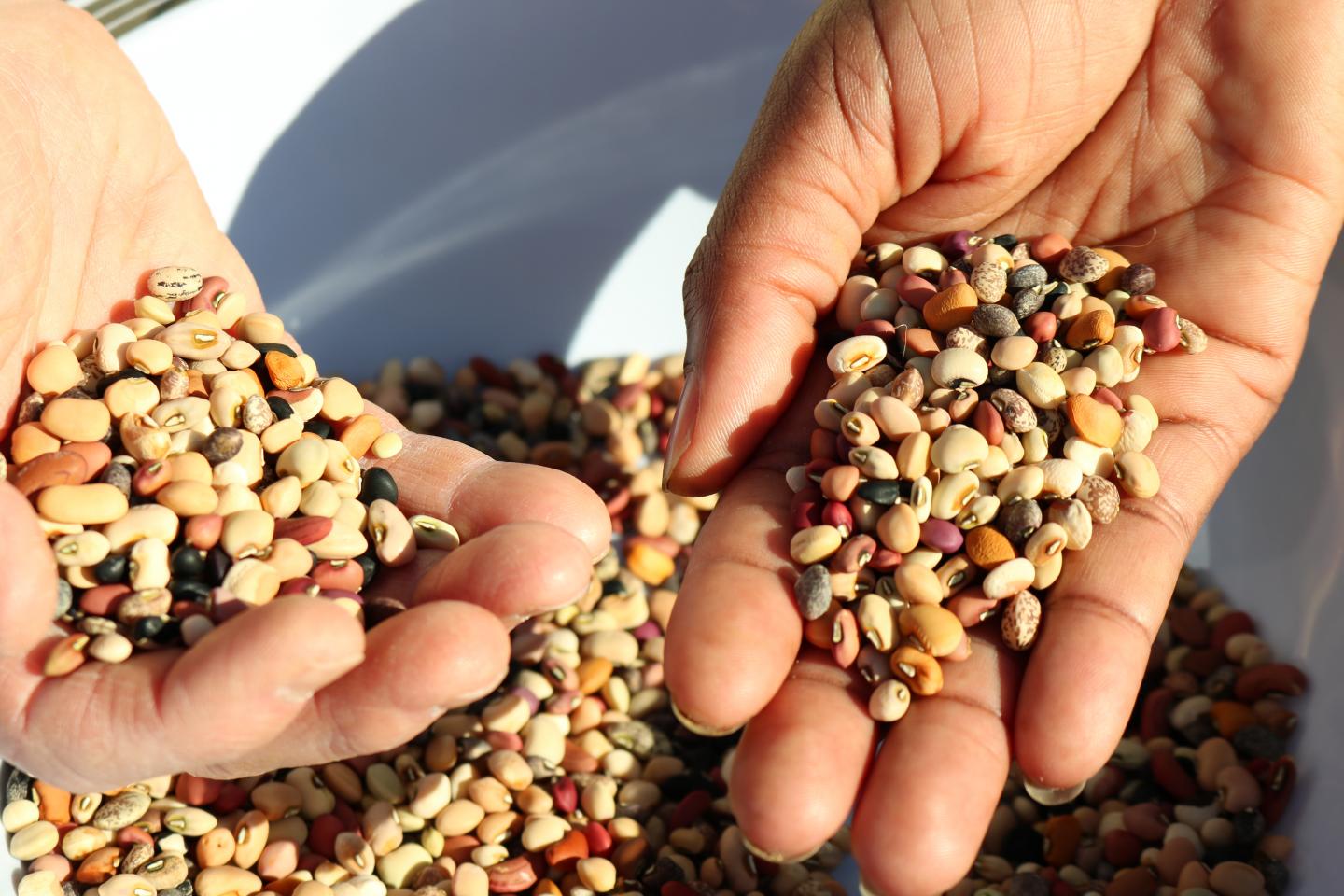
Credit: TJ Close / UCR
UC Riverside scientists have decoded the genome of black-eyed peas, offering hope for feeding Earth’s expanding population, especially as the climate changes.
Understanding the genes responsible for the peas’ drought and heat tolerance eventually could help make other crops tougher too.
Black-eyed peas are small beans with dark midsections. They’ve been a global dietary staple for centuries due to their environmental toughness and exceptional nutritional qualities, such as high protein and low fat. In sub-Saharan Africa they remain the number one source of protein in the human diet.
A genome is the full collection of genetic codes that determine characteristics like color, height, and predisposition to diseases. All genomes contain highly repetitive sequences of DNA that UCR Professor of Computer Science and project co-leader Stefano Lonardi likens to “hundreds of thousands of identical jigsaw puzzle pieces.”
Lonardi described the process of figuring out how the jigsaw puzzle sequences fit together as “computationally challenging.” In order to do so, Lonardi’s team assembled the genome many times with different software tools and parameters. Then they created new software capable of merging these various genome solutions into a single, complete picture.
With the success of this project, the black-eyed pea joins only a handful of other major crops whose genomes have been fully sequenced. The team’s work on the project was published in the June issue of The Plant Journal, where it was featured as the cover story, and Lonardi’s free software can be downloaded online.
Research on black-eyed peas, a legume also known as cowpea, started at UC Riverside more than 40 years ago. But cowpeas’ presence in Riverside predates the university by about 200 years.
“The cowpea has been here supporting people since early colonial times,” said project co-leader Timothy Close, a UCR professor of botany and plant sciences. ‘It’s nice that we’ve brought this plant with so much local history up to state of the art for scientific research.”
This is the first high-quality reference genome for the cowpea. Work on it began three years ago, made possible mainly by a $1.6 million grant from the National Science Foundation, or NSF. An additional $500,000 NSF grant also supported the computational efforts.
A clue to the complexity of the project is the size of the research team. In addition to Close and Lonardi, the many other UCR scientists on the team included María Muñoz-Amatrían, Qihua Liang, Steve Wanamaker, Sassoum Lo, Hind Alhakami, Rachid Ounit, Philip Roberts, Jansen Santos, Arsenio Ndeve, and Abid Md. Hasan. Additional team members inside the U.S. came from UC Davis, the Department of Energy’s Joint Genome Institute in California, the National Center for Genome Resources in New Mexico, and the U.S. Department of Agriculture in Iowa. International team members came from Finland, France, Brazil, and the Czech Republic.
As with humans, there are differences between individual cowpeas. Knowing which genes are responsible for qualities in individuals such as color, size, or pathogen resistance will help breeders develop new varieties even better able to withstand external challenges.
“Having the genome sequence helps scientists make decisions about the choice of parent plants to crossbreed in order to produce their desired progeny,” Close said.
One of the cowpea traits that scientists are now trying to understand is its remarkable ability to recover from drought stress.
“We’re trying to figure out why cowpeas are so resilient to harsh conditions,” said Close. “As we move into a world with less water available to agriculture, it will be important to capitalize on this ability and expand on it, taking the lead from cowpeas to guide improvements in other crops that are vulnerable to climate change.”
###
Media Contact
Jules Bernstein
[email protected]
Original Source
https:/
Related Journal Article
http://dx.




